Few Latin American voices have offered firsthand accounts of Ukraine’s resistance from the perspective of its people. Oscar Alejandro Pérez, a prominent Venezuelan YouTuber with 2.35 million Spanish-speaking subscribers across Latin America and beyond, has stepped into that gap. In a region where Russian narratives remain part of the media landscape and the war’s stakes are frequently misunderstood, Pérez’s journey to Kyiv and Kharkiv goes far beyond a travel vlog. It is a form of grassroots public diplomacy — conducted not by an embassy, but by a content creator whose storytelling blends personal encounters, historical context, and vivid imagery. By translating the complex realities of Russia’s invasion into a relatable, human-centered narrative, Pérez is reshaping perceptions across Latin America, challenging misinformation, and fostering a deeper emotional connection to Ukraine’s struggle for freedom.
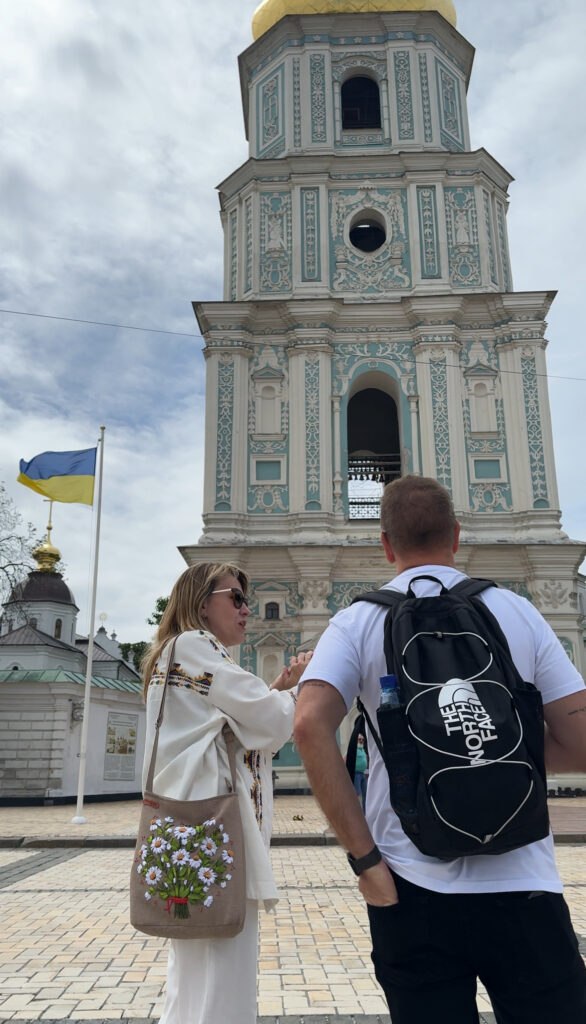
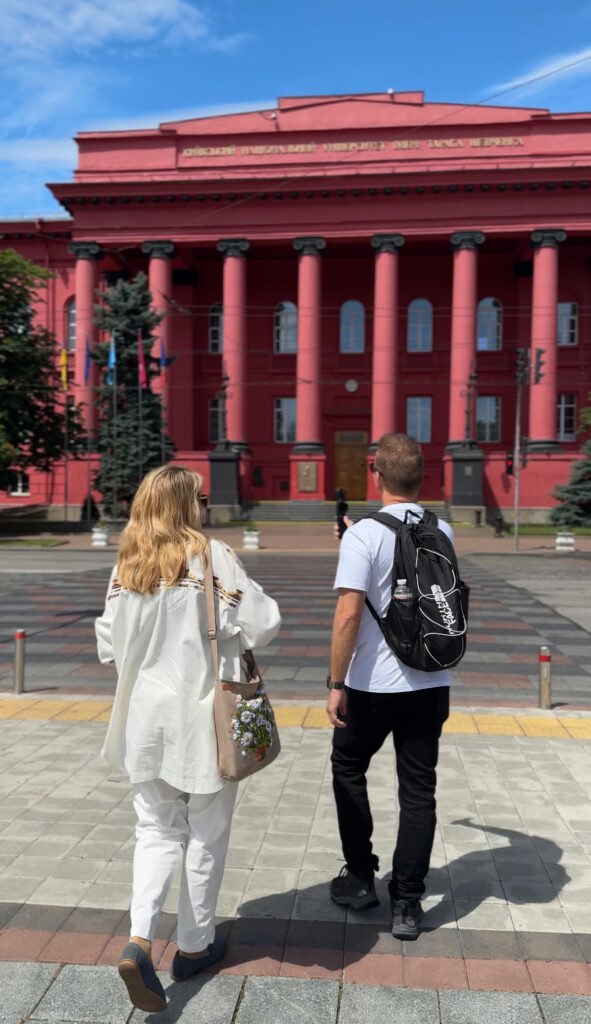
The week-long trip to Kyiv and Kharkiv, which Oscar took with Colombian journalist Juan Carlos Rincón Escalante of El Espectador and La Pulla, was not a standard press tour. Their itinerary, curated by the TDC team of Oleksandr Slyvchuk, Alina Rohach, and Bohdana Batsko, was a deliberate immersion into the human consequences of the war. The trip was intentionally structured to move beyond formal briefings, offering instead an in-depth view of the war’s impact on daily life. This initiative was conducted as part of the Spain and Latin America Cooperation Program.
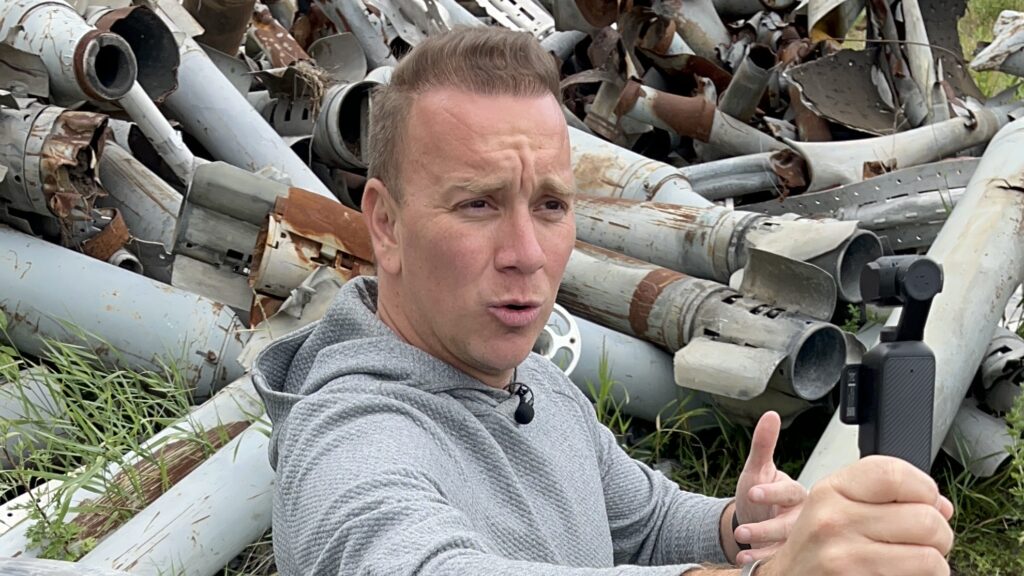
Kyiv and Beyond: Stories of Resistance and Loss
Oscar’s journey in Ukraine began in Kyiv, where the city’s vibrant life is juxtaposed against the visible scars of war. As the Ukrainian capital bears the marks of Russian aggression, it also demonstrates an unwavering commitment to life and progress. On his walks through the city, Oscar saw residential buildings scarred by Russian strikes — the shattered walls and gaping windows left behind by drone attacks and the powerful blasts of ballistic missiles. The streets of Kyiv tell a story not just of destruction, but of defiance — where key landmarks stand tall amidst their damaged surroundings.
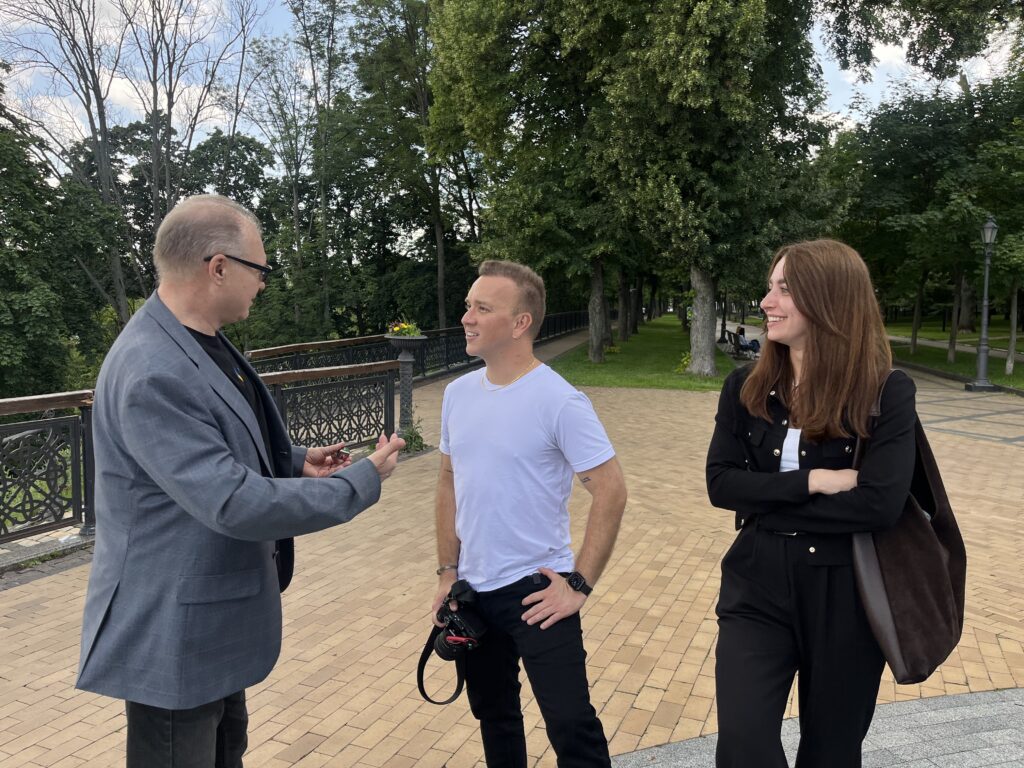
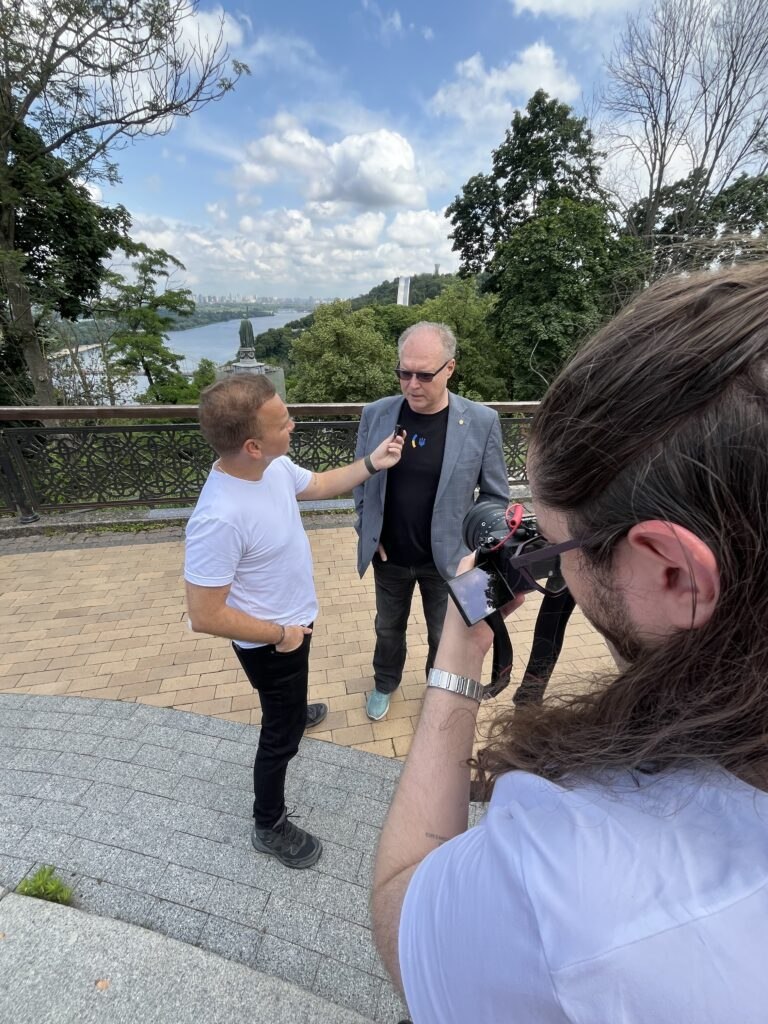
Oscar’s interactions in Kyiv were grounded in conversations that revealed Ukraine’s multilayered struggle. Meeting with Ruslan Spirin, Ukraine’s Special Representative for Latin America, Oscar engaged in a candid discussion about the roots of Russian aggression, the delicate diplomatic work required to expand Ukraine’s presence in Latin American nations, and the ways in which Moscow’s narratives have shaped perceptions of the war. Spirin explained the nuances of Ukraine’s foreign policy and efforts to challenge disinformation — particularly in regions like Latin America, where stereotypes and misinformation have often taken root.
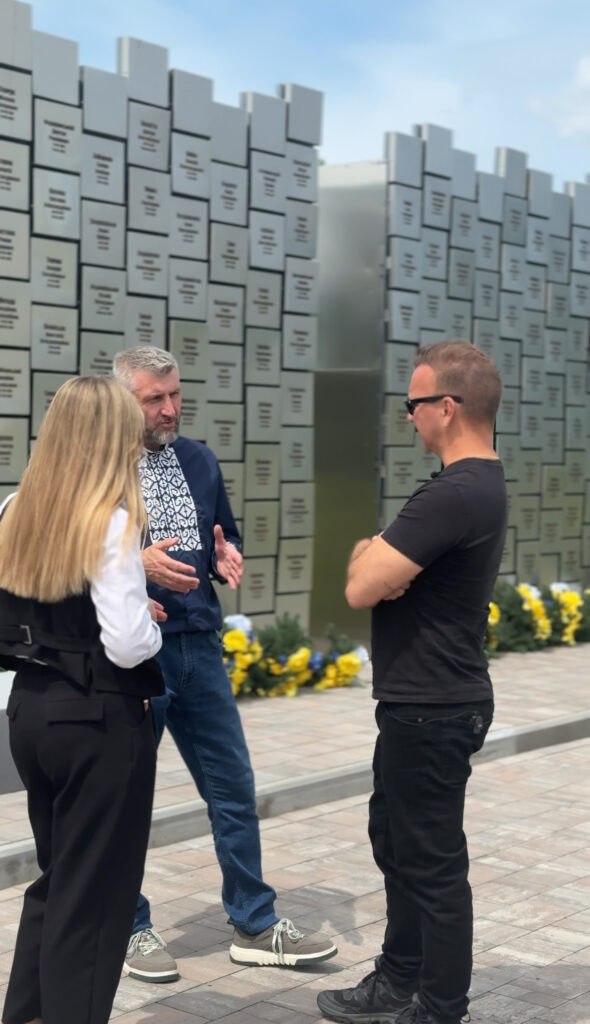
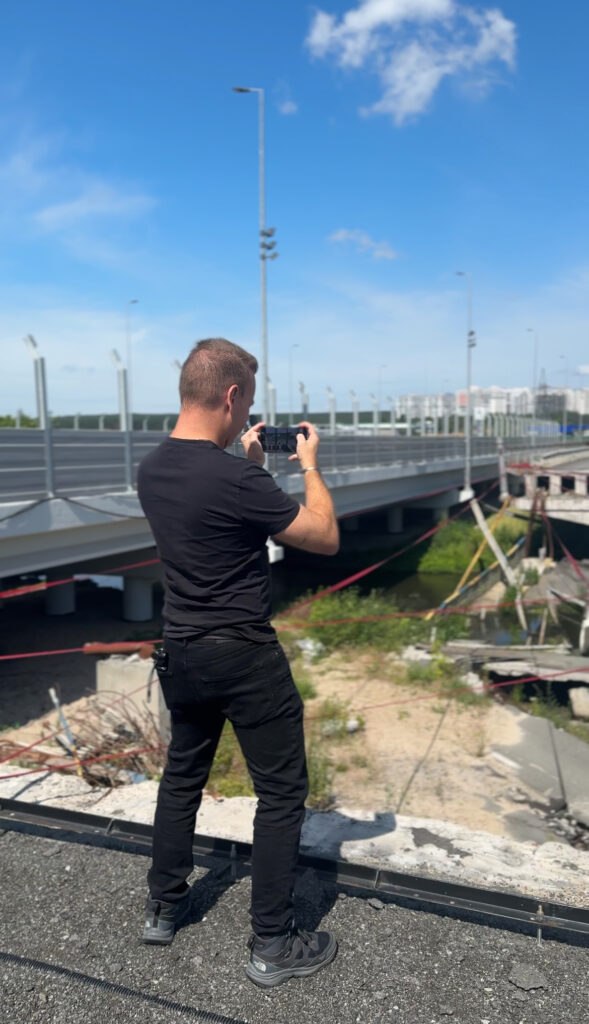
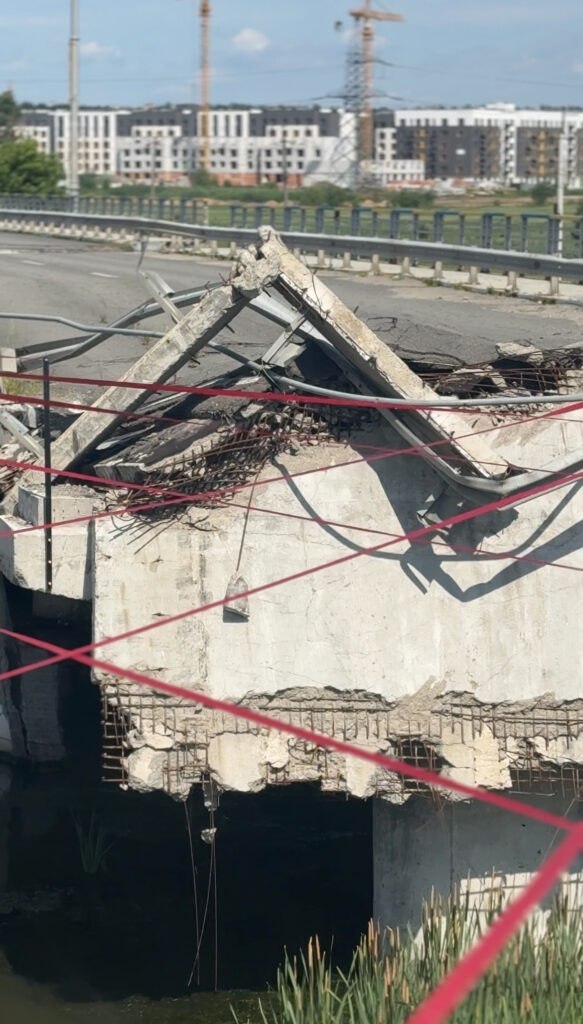
Oscar’s trip also took him to Kyiv Oblast, a region that has borne the brunt of Russia’s onslaught. The visit led him to Irpin, where he saw the remains of the Romanska Bridge — a key point for Ukrainian forces during the early stages of the war. In Irpin, the destruction of residential areas stood as a grim reminder of the toll the war has taken on civilians. A visit to the machine graveyard, where thousands of vehicles lay abandoned or destroyed by Russian occupiers, stood as stark evidence of the devastation the war has wrought. In Bucha, the memory of the atrocities committed by Russian forces remained palpable. In Moshchun, Oscar witnessed the collective grief of the community at the “Angels of Victory” Memorial — a symbol of resistance and a reminder of the village’s role as a key stronghold in the battle for the capital.
Kharkiv: A City Shaped by War and Courage
The program organized by Kharkiv Media Hub took Oscar to Kharkiv, a city significantly impacted by the ongoing war. Located close to the Russian border, Kharkiv has endured extensive military assaults. Yet, as Oscar discovered, the city’s resilience is a story of adaptation and survival. Visiting the “missile graveyard,” a site where remnants of Russian missiles and drones are preserved as legal evidence, Oscar saw firsthand the scale of the destruction that has come with the invasion.
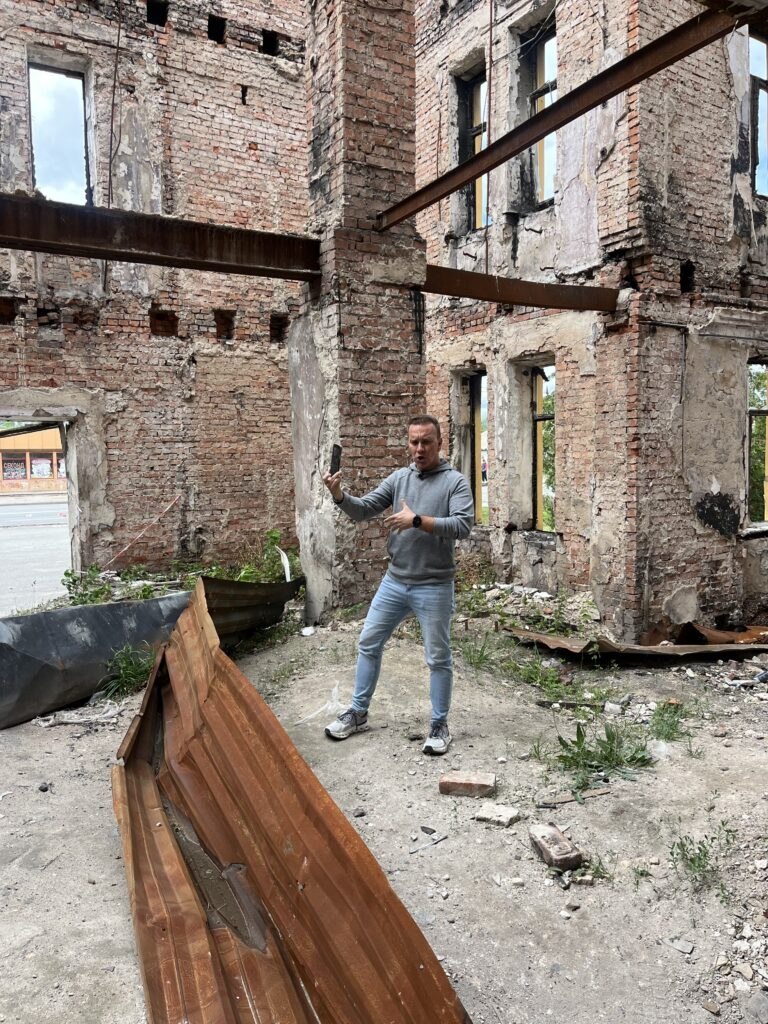
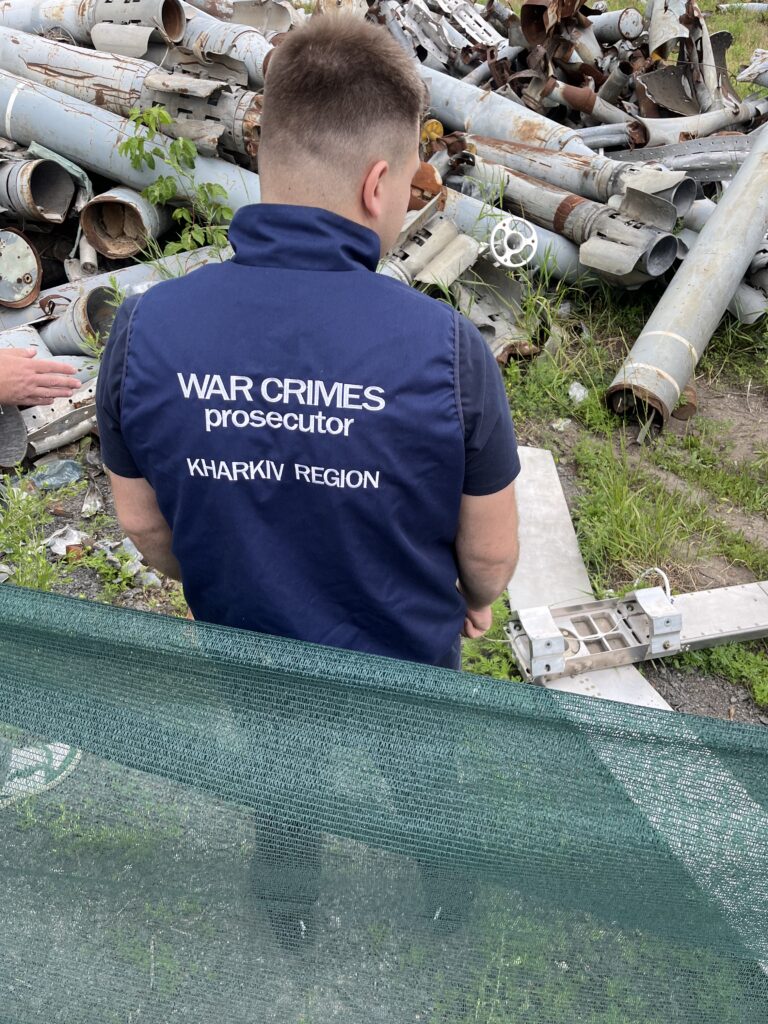
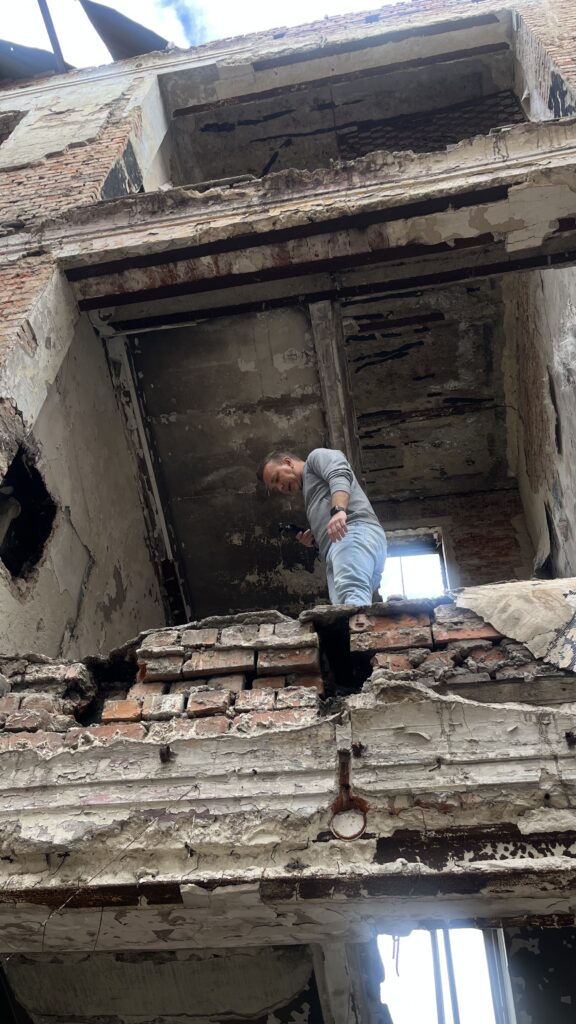
A significant moment of the visit came when Oscar joined Ukrainian veteran Dmytro Oliinyk, who shared his firsthand account of fighting back Russian forces near Kharkiv’s School №134. This powerful exchange allowed Oscar to witness the personal dimension of Ukraine’s war — the experiences of those who are not just soldiers, but defenders of their homes and their country’s sovereignty. The stories of civilians who have lived through airstrikes and shelling are another layer of the resilience that Oscar uncovered during his time in the city.
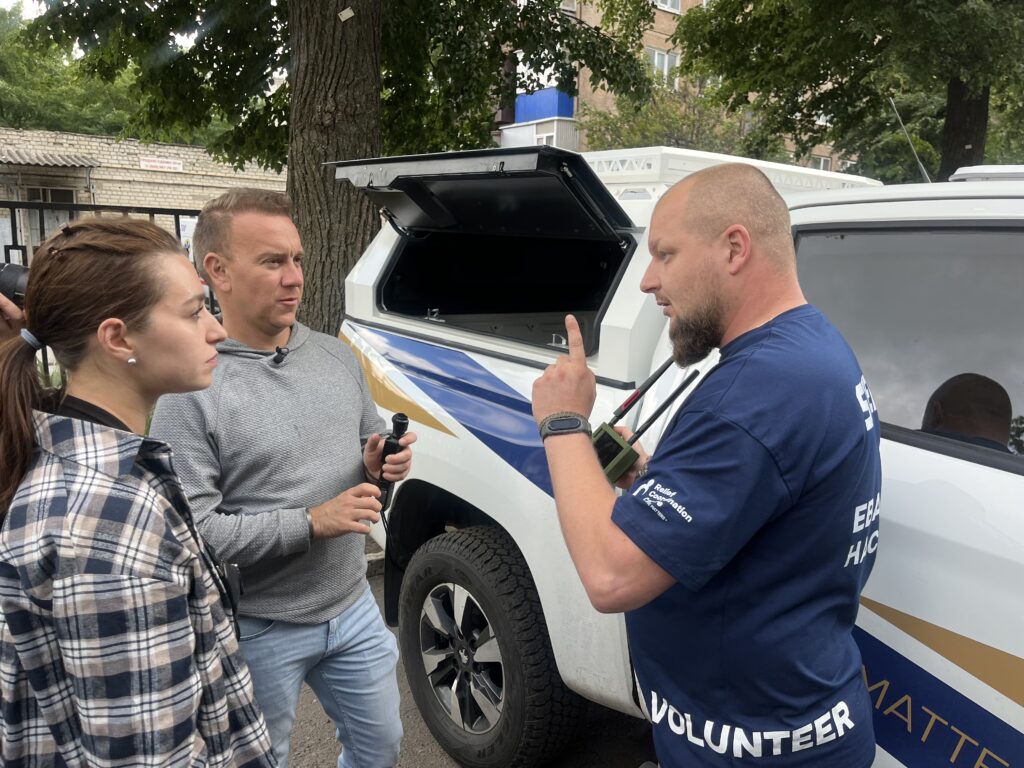
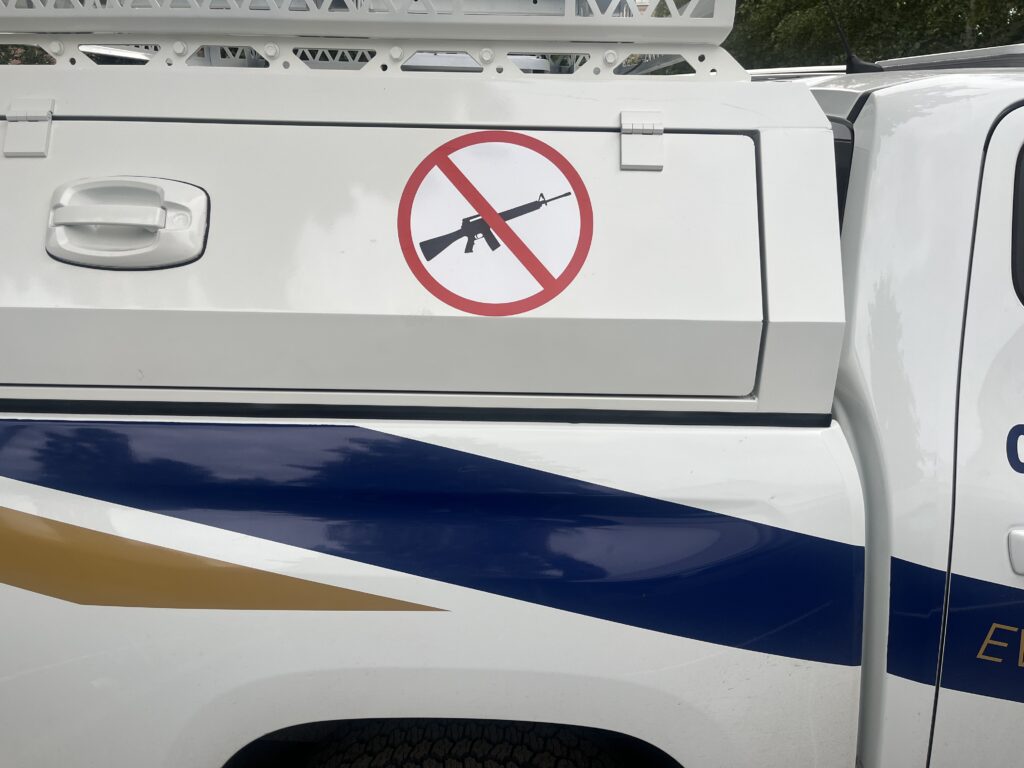
Moreover, the visit to Kharkiv showcased the importance of humanitarian initiatives, such as the Relief Coordination Centre, which handles evacuations and the distribution of aid to those most in need. It was here that Oscar saw the operational side of Ukraine’s war effort — the precision, coordination, and care that are as crucial as the military actions themselves.
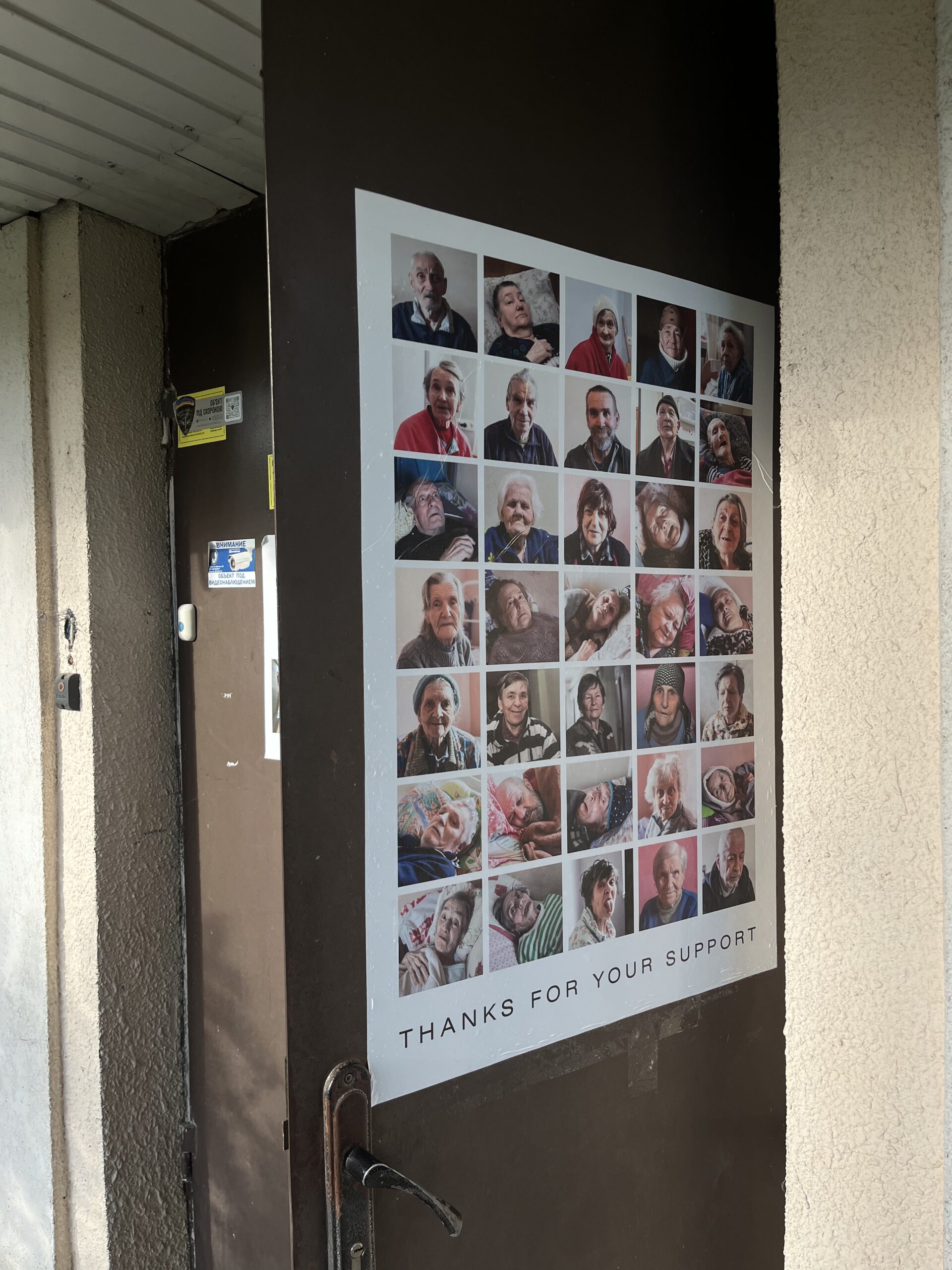
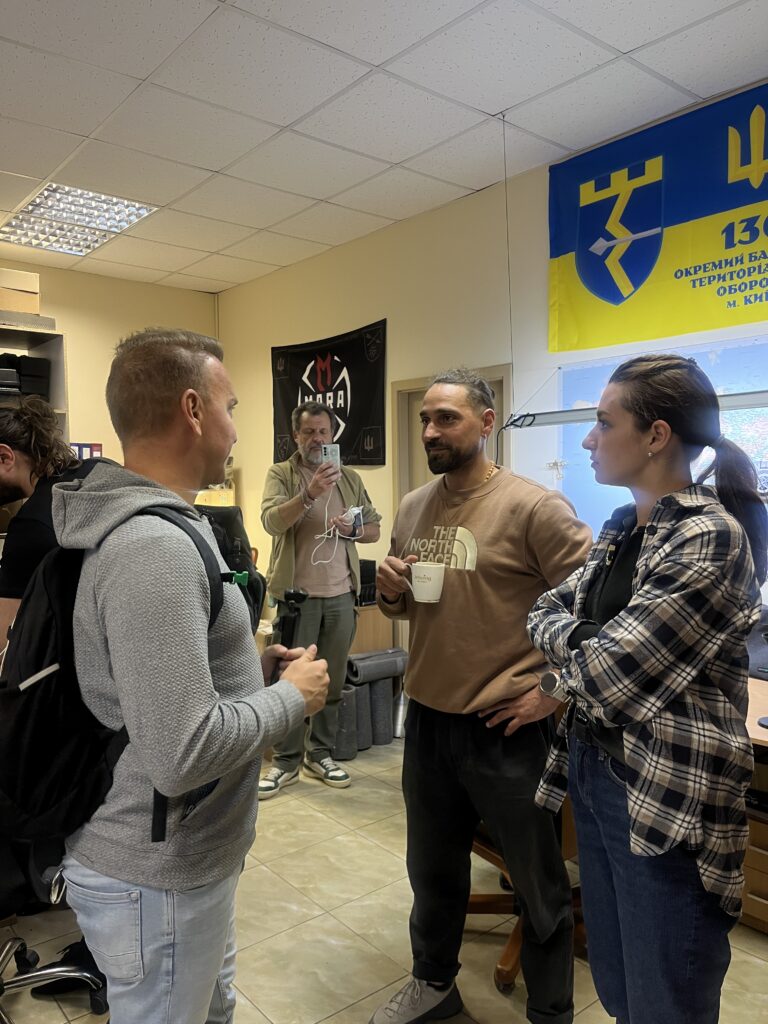
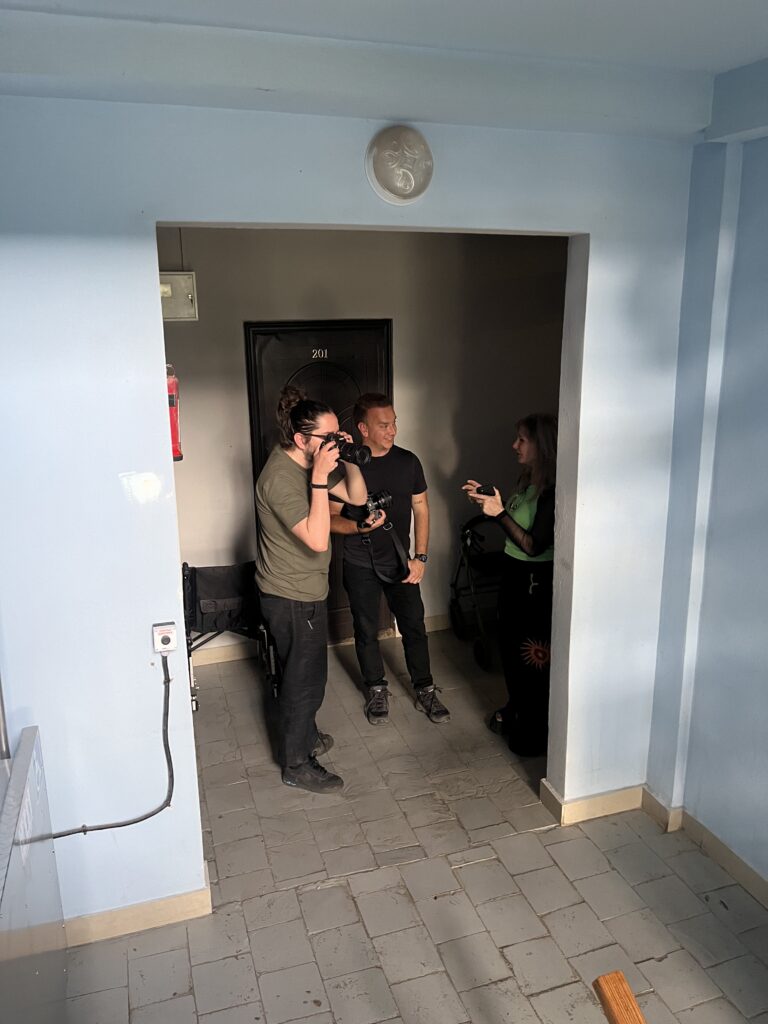
The city also highlighted the resilience of culture and community amidst the devastation. In a bomb shelter, Oscar observed a ballet rehearsal, illustrating the continued importance of cultural expression even in difficult times. His visit to Staryi Saltiv, a town previously occupied by Russian forces, emphasized the gradual process of rebuilding communities that had been severely affected by occupation. At the De Visu drone manufacturing facility, Ukrainian engineers showcased how the country is leveraging advanced technology to enhance its defense capabilities, transforming innovation into a strategic asset. Additionally, in a shelter operated by the NGO Through the War, elderly individuals and people with disabilities found not only safety but also dignity, reflecting the ongoing strength of Ukraine’s social structures during the war.
Oscar’s Impact: Engaging Latin America in a New Way
After his visit, Oscar shared four episodes on YouTube, offering his audience a rare and candid portrayal of Ukraine’s wartime reality. His series — Ukraine 1/4: I entered the country in the midst of war, Ukraine 2/4: I traveled through the capital at its worst moment, Ukraine 3/4: I explored the cities destroyed by war, and Ukraine 4/4: We arrived at the front line — has garnered significant attention and sparked discussions across Latin America. Oscar’s content presents not only the destruction but also the ongoing fight for survival, progress, and dignity in the face of an unprovoked war.
For the millions of Latin Americans who follow Oscar’s travels, this series serves as a counter-narrative — one that provides a more nuanced understanding of Ukraine beyond headlines and political rhetoric. His videos focus on the human stories of war, shedding light on the perseverance and courage of the Ukrainian people. In doing so, Oscar has tapped into a powerful communication model that focuses on human-centered storytelling, giving his audience in Latin America a chance to connect with a part of the world that might otherwise seem distant and foreign.
The Strategic Significance of Independent Voices
Oscar Alejandro Pérez’s visit to Ukraine not only deepens the Latin American understanding of the war and its human cost but also marks a significant step toward fostering long-term solidarity. By amplifying voices that challenge prevailing narratives, Oscar’s visit contributes to a growing counteroffensive against disinformation. For Ukraine, such engagement represents an opportunity to break through the walls of misinformation that have long kept the country at arm’s length from many parts of the world.
The visit was organized with the support of the International Renaissance Foundation.